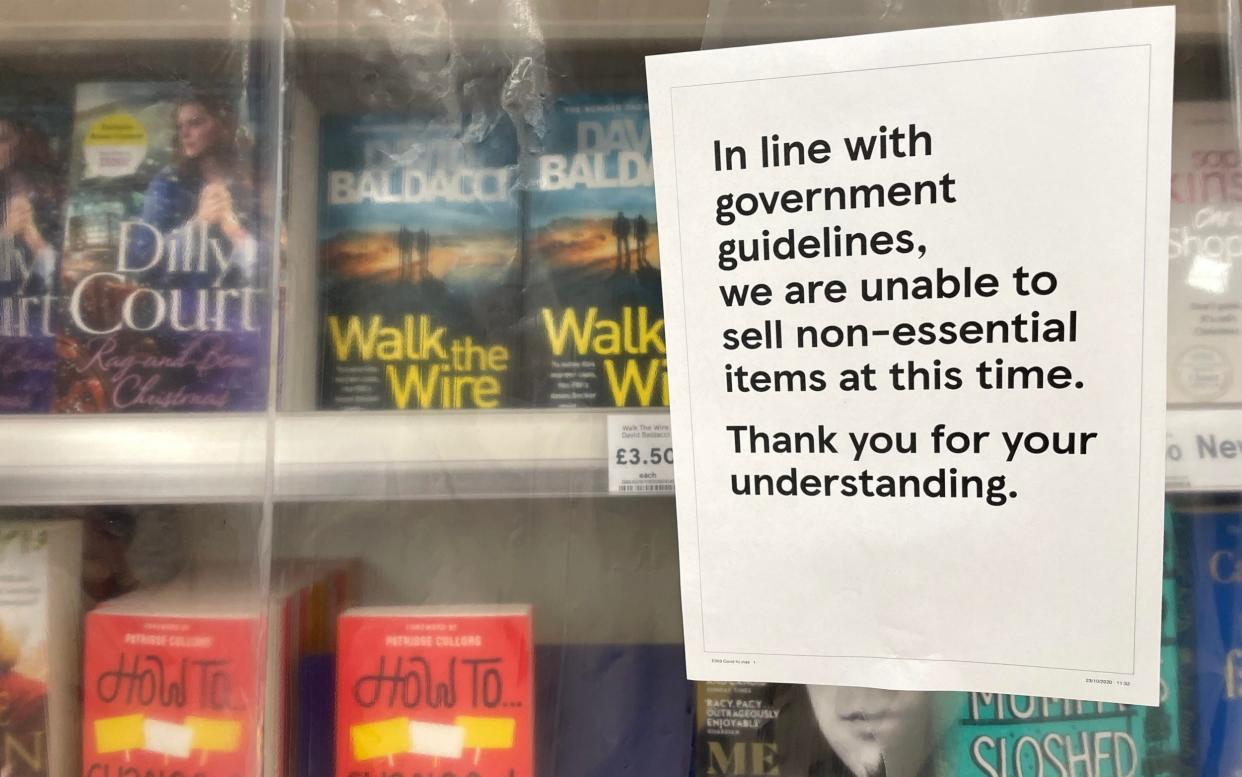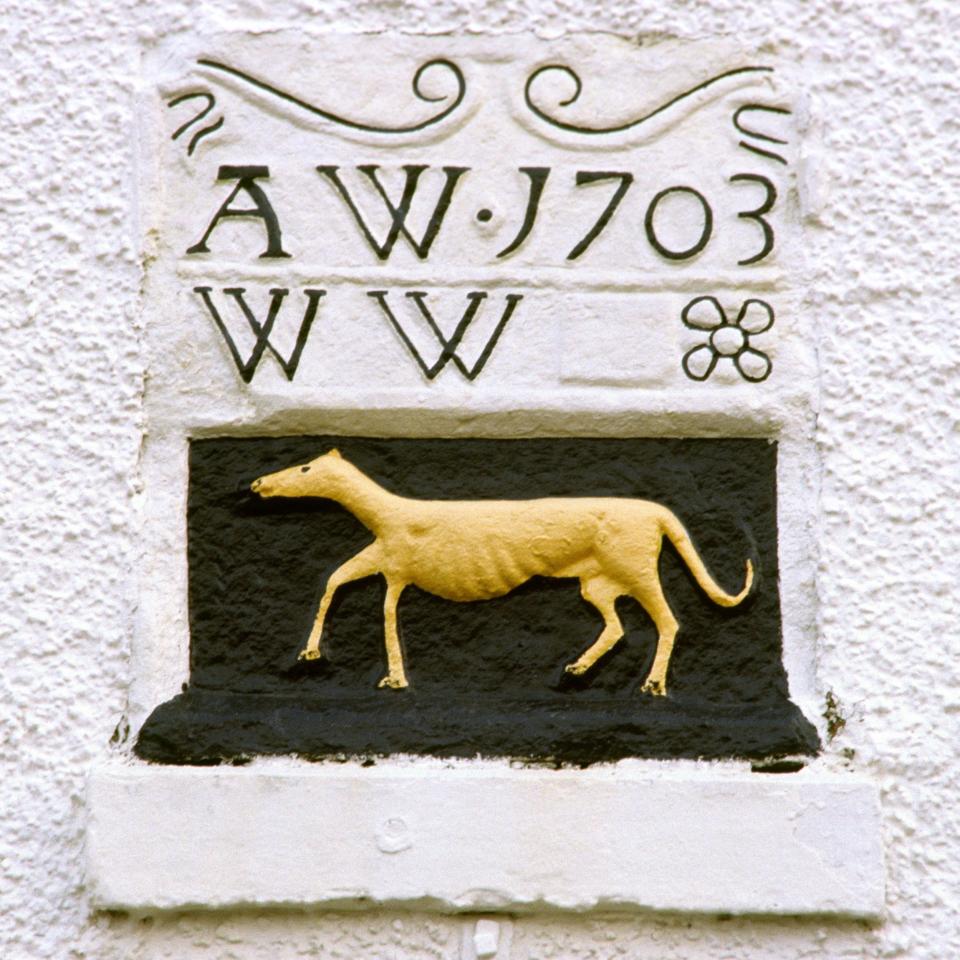Letters: The Government’s coronavirus restrictions are destroying our society

SIR – Last November, like many others, I voted Conservative at the general election. Nearly a year later the country has changed beyond recognition. We have seen restrictions on personal freedoms unprecedented in peacetime. Freedom of movement is restricted, and people are prevented from seeing children, grandchildren, parents and the sick in hospital. People have been unable to attend weddings and even funerals.
Businesses – indeed whole industries – are being destroyed, thousands face redundancy, and young people’s education and futures are being wrecked. This has all been imposed by ministers without proper parliamentary debate. In short, I now live in a country closer to East Germany at the height of the Cold War than the Britain I grew up in.
All this has supposedly been necessary to protect us from Covid-19. We are told that the Government is “following the science”, yet little of this science has been published or properly scrutinised, and the modelling quoted has been widely discredited. The aim seems to be to continue like this until a vaccine is produced. Meanwhile, people are dying as a result of not being able to get scans or treatment for cancers and other serious diseases.
Nobody would pretend that the situation has been easy and the initial aim of protecting the NHS from a surge of patients was sensible, but it is utterly futile to continue in this way. We have to live with the virus. The NHS will not exist at all if the country goes bankrupt.
I cannot vote for a government that persists in destroying our society in this way.
Mike Finnis
Hinchley Wood, Surrey
SIR – In Wales we have started a 16-day “fire break” (report, October 25) – a catchy name for a total lockdown. All non-essential shops, bars and restaurants have closed, al though they have complied with all the regulations to make them safe. Essential shops, though open, cannot sell goods deemed unessential by the Welsh government. Where did it get the right to determine what is non-essential?
We have already had cases of heavy-handed police telling people where they can and cannot shop, and issuing fines. It feels very much as if we are living in a police state run by a dictator. What has happened to our freedoms and democracy in Wales?
Trevor Gall
Carmarthen
SIR – I am obviously labouring under the misapprehension that we live in the United Kingdom of England, Wales, Scotland and Northern Ireland. It seems that Wales and Scotland are now completely independent nations, given their first ministers’ actions.
Kevin Dowling
Welbourn, Lincolnshire
SIR – If Boris had made his a five-tier lockdown plan, would Nicola have made hers six?
Paul Schofield
Chawton, Hampshire
NHS waiting lists
SIR – As politicians debate what to do about Covid-19 (report, October 22), we risk neglecting necessary NHS reform.
Any government hoping to manage the service must reduce its lengthening waiting lists and backlog of treatments. Spare capacity is not only needed for coronavirus cases but is also necessary for patients with common clinical conditions whose prompt treatment locally would help to reduce waiting lists.
If each area’s clinical needs were assessed, deficiencies such as low staffing and insufficient training, as well as bed shortages, and up-to-date equipment and premises, could be made good. Increased cost would be one of the disadvantages of a more devolved approach, but the building of whole new hospitals might cost more, they would be unlikely to come on stream for years and would also cover only parts of the UK. If there were shorter waiting lists any patient, whatever their age, would be more likely to consult their GP.
Dr Ramon Gardner
Emeritus Consultant Psychiatrist
Addenbrooke’s Hospital, Cambridge
Trust objectives
SIR – I am glad the Charity Commission has woken up (report, October 23) and is to look into the National Trust.
The Trust has strayed beyond its registered objectives and it deserves censure. Keeping historic buildings in shape is what it is for and why so many people leave money to it in their wills. Contentious issues such as historical slavery and modern-day racism are matters for political action groups, not causes to be espoused by charities.
Hugh Rogers
Ashby, Lincolnshire
SIR – I read that the National Trust is reducing costs and laying off staff due to coronavirus (report, October 9).
No doubt this has had an effect, but I suspect these actions are also driven by the large number of resignations it has received from members outraged by its attempts at political correctness.
John Hutchinson
Addingham, West Yorkshire
Hail the new year
SIR – I suggest this message (Letters, October 23) for Christmas cards: Felicium Temporum Reparatio.
It has been found engraved on buried Roman coins, and translates as “the restoration of re-establishing happy times”.
Anthony Greenstreet
Camberley, Surrey
Black Army officers
SIR – Lieutenant Euan Lucie-Smith (report, October 23) was not the first black officer in the British Army.
Surgeon majors J A B Horton and W B Davies were commissioned into the Army Medical Department in 1859 and served for more than 20 years in West Africa. Both were recruited in Sierra Leone, brought to England and educated at the Army’s expense at King’s College London.
The West India Regiment was raised in 1795 as part of the British Army and at least one of its officers, William Fergusson, was Afro-Caribbean. He became governor of Sierra Leone in 1857, the only man of African descent to hold that rank substantively.
John Richardson
Emeritus Defence Professor of Primary Care and General Practice
Chichester, West Sussex
SIR – Nathaniel Wells, born in 1779, was the second black officer to hold a commission in the British Army. In 1820 he served as a lieutenant in the Chepstow troop of Yeomanry (later the Royal Gloucestershire Hussars).
He was an illegitimate child of William Wells, a Cardiff merchant who owned plantations on St Kitts, and a slave woman. He was freed by his father aged four, christened and sent to England to be educated. When his father died in 1794 he inherited a large fortune (including 146 slaves) and purchased an estate at Piercefield, now the site of Chepstow Racecourse. He was also a magistrate, a deputy lieutenant and high sheriff of Monmouthshire.
He freed his mother and her children but otherwise continued to own the plantation and its slaves, and received a considerable sum in compensation when slavery was abolished in the British colonies. Some will say he was a conundrum, others that he was a product of his times.
John Penley
Honorary Colonel Royal Gloucestershire Hussars
Uley, Gloucestershire
SIR – I think the Royal Navy beat the Army in the black officer stakes by about 140 years.
John Perkins joined the service in 1775 and was made commander in 1797. He became a post captain in 1800 and commanded the frigates HMS Arab (22 guns) and HMS Tartar (32).
Ian Campbell
Staines, Middlesex
Free school meals
SIR – The Government has missed a trick by rejecting the call to provide free school meals to pupils during half term (report, October 22).
By feeding needy children it could also be helping the hard-pressed hospitality industry. The MPs who voted against this will rue the day.
Allan Ashworth
York
Smashing pumpkins
SIR – Once again there is an abundance of pumpkins in the shops. Why, every year, does so much good food go to waste, rotting on the doorstep of so many homes? They make a wonderful soup or pie so why, on November 1, do they all disappear? Is this another example of a mountain of food waste?
Anne Donaldson
Spilsby, Lincolnshire
Scam and blast
SIR – I too suffer from scam phone calls. I keep a referee’s whistle by the phone, wait till the scammer gets into their stride, then give them a blast.
Ian Carter
Lytham St Annes, Lancashire
Covid rules could spell last orders for rural pubs

SIR – The Government has had very few successes during its handling of this pandemic, and I can report one particularly negative result. Rural pubs in areas with little or no infection have been unintentionally turned into the most inhospitable places and few people are now using them.
The authorities are checking for breaches of the regulations, but are wasting their time and our money. A host welcomes customers wearing a mask, those customers then sit down and remove theirs, only to put them back on to visit the lavatory. Where is the science in that?
While often quoted, it is worth repeating Hilaire Belloc’s lines:
From the towns all inns have been driven: from the villages most … Change your hearts, or you will lose your inns, and you will deserve to have lost them. But when you have lost your inns drown your empty selves – for you will have lost the last of England.
Michael Glover
Dinton, Salisbury
Smart motorways are endangering driver safety
SIR – How did a policy that so obviously reduces motorway safety get implemented (“Smart motorway widow insists Highways England is responsible”, October 20)?
The provision of refuges helps to maintain traffic flow and is also an acknowledgement of danger. Calculating the risk takes account of the distance between them and of access for the emergency services. Increasing their number does not completely eliminate the additional risk unless they become continuous – which is a hard shoulder.
It seems to imply that a level of carnage and fatality is acceptable.
Dr Brian Simpson
Dinas Powys, Glamorgan
SIR – I do not mean to make light of a horrific road accident, but a recent one on the M25 closed the whole stretch from junctions eight to 10 for more than eight hours.
A motorway that cannot open even a single lane for so long seems anything but smart. I fear the Sage folk must have taken over, deciding that if there is no traffic the world will be safer.
Daniel Fearon
New Malden, Surrey
Letters to the Editor
We accept letters by post, fax and email only. Please include name, address, work and home telephone numbers.
ADDRESS: 111 Buckingham Palace Road, London, SW1W 0DT
FAX: 020 7931 2878
EMAIL: dtletters@telegraph.co.uk
FOLLOW: Telegraph Letters on Twitter @LettersDesk

 Yahoo News
Yahoo News 
